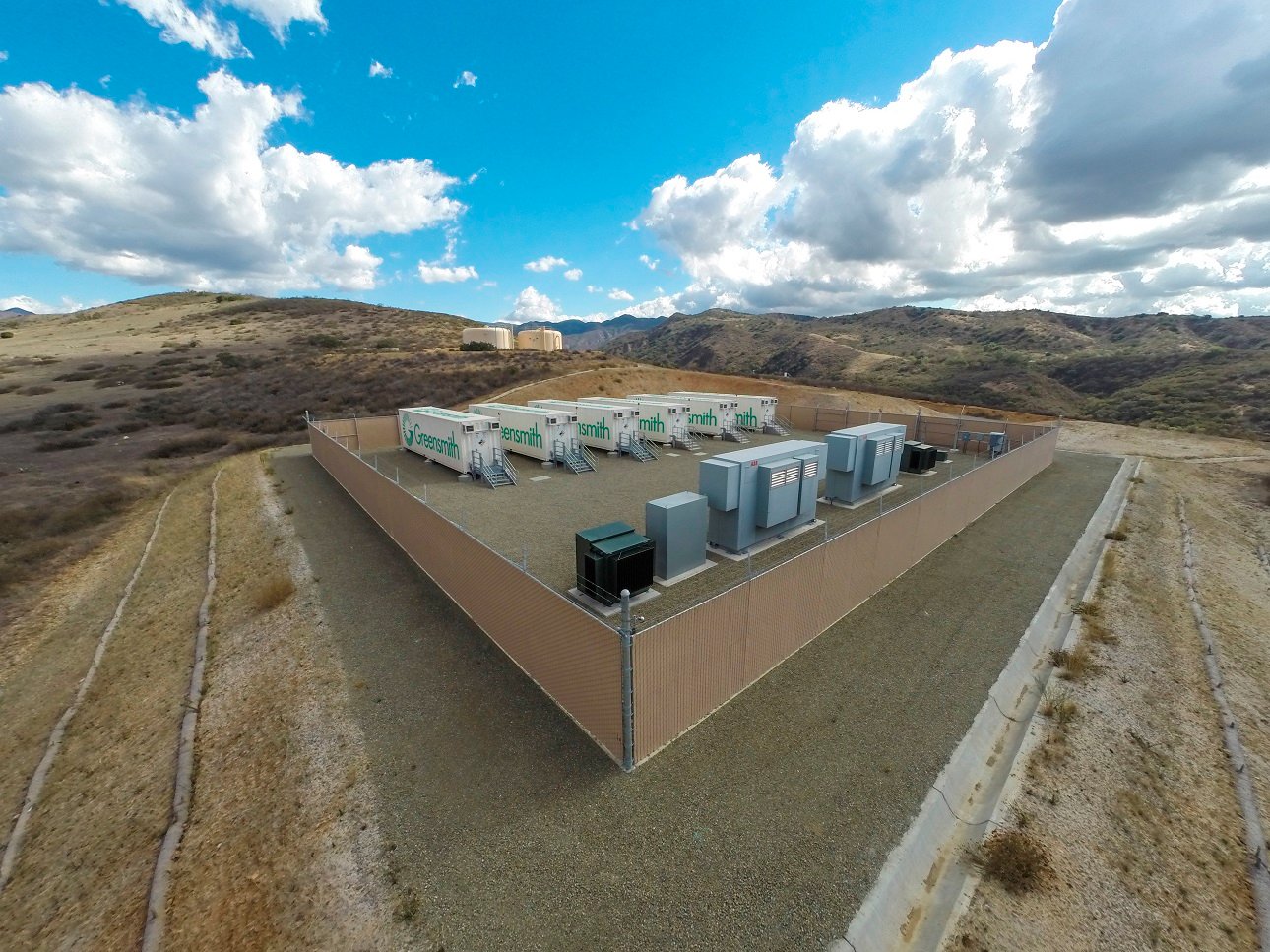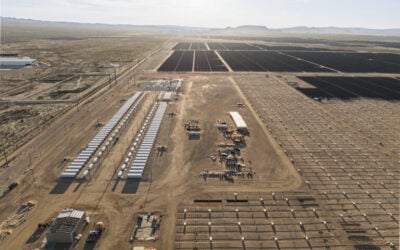
Two grid-scale battery energy storage projects, one just completed in Texas and one just announced in California, give an indication of the growing market opportunities in the US’ regional grid operators’ service areas.
Rabbit Hill, a 10MW battery energy storage system (BESS), went online in Texas during April, from Viridity Energy Solutions, a subsidiary of geothermal company Ormat Technologies. The project will “provide ancillary services and energy optimisation” into wholesale markets run by the Electricity Reliability Council of Texas (ERCOT), which operates the electric grid as well as deregulated energy markets in Texas.
Enjoy 12 months of exclusive analysis
- Regular insight and analysis of the industry’s biggest developments
- In-depth interviews with the industry’s leading figures
- Annual digital subscription to the PV Tech Power journal
- Discounts on Solar Media’s portfolio of events, in-person and virtual
“The system provides fast responding capacity, helping ERCOT maintain grid reliability, as it copes with changes in supply and demand, driven by the growing penetration of wind and solar generation, more frequent extreme weather events and other challenges. Our state-of-the-art system was designed to be able to provide all types of ancillary services required by ERCOT, including fast frequency response,” Ormat CEO Isaac Angel said.
“Our first BESS project in Texas and the fifth to our Energy Storage and Management Services segment, marks another milestone in our strategy to develop, own and operate energy storage facilities in several key US markets, also including New Jersey, New England and California,” Angel said.
Ormat said Viridity Energy Solutions designed, built and now owns and operates the lithium-ion BESS, with batteries sourced from an unnamed tier 1 supplier. The Rabbit Hill project’s system integrator was LS Energy Solutions, while Ormat supplied its own on-site energy management system (EMS) and the project is connected to Ormat’s remote network operations centre. Ormat bought up Viridity for US$35 million in 2017 in order to enter the energy storage market.
Last year, in April 2019, as another 10MW project in Texas was being prepared for construction to begin, that project’s developer GlidePath Power told Energy-Storage.news that “ERCOT is a highly competitive market with room for multiple technologies to participate in providing energy, ancillary service and reliability functions”.
70MW subsidy-free California project
Also in the past few days, technology provider Wärtsilä announced that an unnamed customer has contracted it to build a 70MW battery energy storage project which will play into markets run by the California Independent System Operator (CAISO).
Wärtsilä is providing the energy storage, which will use the company’s energy management system and GEMS software platform. While the company was not able to provide many further details on request by Energy-Storage.news, a press release said the GEMS software will enable the battery project to do energy arbitrage. Wärtsilä’s customer can buy power to charge the battery system when prices are low and then sell it back to the market when short-term costs spike. This was cited as one of a potential number of revenue streams.
The 70MW battery system will be combined with the customer’s existing renewable energy power system. At the customer’s request, the system uses lithium iron phosphate (LFP) chemistry batteries. The project is expected to be built by “mid-2020”, having been booked late last year.
“This sizeable 70 MW project demonstrates the growing value being placed on energy storage; there are no government programs or regulations in place that incentivised this build,” Risto Paldanius, Wärtsilä Energy Business’ business development director for energy storage and optimisation, said.
As this news item was about to be published today, also Wärtsilä announced that it is gearing up to adapt the gas turbine engines it makes to run on 100% hydrogen and will be designing projects that combine renewables, battery storage and hydrogen electrolysis to cover the full gamut of energy and power services. Batteries would provide the shorter-term balancing and hydrogen the longer duration or even seasonal storage.






